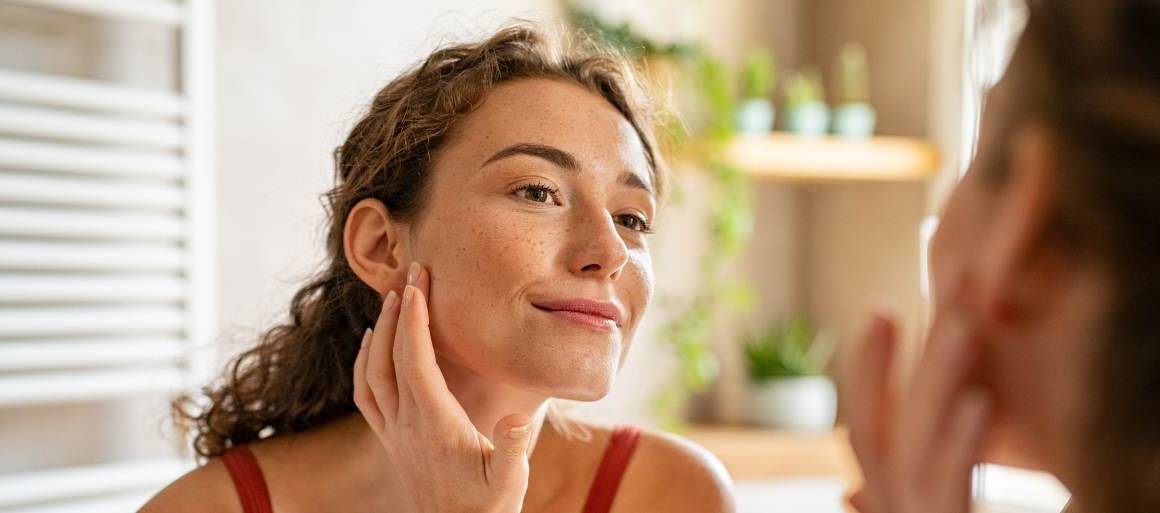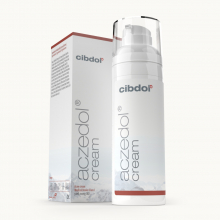Can Not Eating Enough Cause Acne?
Published:
Acne is a common skin condition that affects people of all ages. It is characterized by pimples, blackheads, whiteheads, and deeper lumps called cysts that appear on the face, neck, chest, back, shoulders and upper arms.
Contents:
- What Causes Acne?
- Can Not Eating Enough Cause Acne?
- Why Severe Calorie Restriction Causes Acne in Some People
- Tips to Prevent Acne Despite Restricted Calories
- When to See a Doctor
- Summary
- FAQ: Can Not Eating Enough Cause Acne?
- What are the common myths about diet and acne?
- Does dairy cause acne?
- Can nutrient deficiencies cause acne?
- Do ketogenic or low-carb diets promote acne?
- How does calorie restriction cause acne?
- Does intermittent fasting worsen acne?
- What foods are beneficial for acne-prone skin?
- How can you prevent acne from calorie restriction?
- When should you see a doctor for diet-related acne?
- What acne treatments are available?
Acne can be caused by different factors like hormonal changes, genetics, oily skin, stress, certain medications, and diet. There is an ongoing debate on whether eating too little can lead to acne breakouts. This article will dive deeper into the question - can not eating enough cause acne?

What Causes Acne?
Before we look at the link between diet and acne, let’s first understand what causes acne in the first place.
The main causes of acne include:
- Excess sebum production - Sebum is the oil secreted by the sebaceous glands in the skin. When too much sebum is produced, it mixes with dead skin cells and clogs the hair follicles. This creates a plug that traps bacteria leading to inflammation and acne lesions.
- Hormones - Androgens like testosterone cause the sebaceous glands to enlarge and produce more sebum. This is why acne flare ups are common during puberty. Women also breakout more during menstruation, pregnancy and menopause due to hormonal changes.
- Bacteria - The bacteria Propionibacterium acnes (P. acnes) thrives in clogged follicles. It multiplies and causes whiteheads, blackheads and inflammatory acne lesions.
- Genetics - Studies show that acne runs in families. If your parents had severe acne, you're more likely to struggle with it too.
- Stress - Stress causes increased cortisol and oil production which leads to acne.
- Diet - Certain foods like dairy and high glycemic index foods can trigger breakouts in acne-prone people. Nutrient deficiencies may also contribute to acne.
Now that we know what causes acne, let’s focus our attention on the role of diet.
Can Not Eating Enough Cause Acne?
This is a complex question with arguments on both sides. Some dermatologists firmly believe that diet has no impact on acne whatsoever. Others argue that nutrition deficiencies and eating too little can aggravate acne in some cases.
Here’s an in-depth look at the debate:
The Theory - How Under-Eating May Promote Acne
Proponents of the theory that restricted eating can trigger acne breakouts present some interesting arguments:
- Nutrient deficiencies - Not eating enough leads to vitamin and mineral deficiencies which may contribute to acne. Deficiencies in vitamin A, zinc, omega 3s, probiotics and antioxidants are linked to skin inflammation and acne.
- Hormonal imbalance - Severe calorie restriction and under-eating is known to cause hormonal changes in the body. This includes reduced estrogen levels and increased cortisol and androgens - all of which stimulate oil production and can worsen acne.
- Impaired gut health - Starvation diets compromise gut health since your gut microbes need varied nutrients to thrive. An unhealthy gut may cause systemic inflammation which shows up as acne on your skin.
- Insulin resistance - Prolonged under-eating can promote insulin resistance which causes increased testosterone and sebum production leading to clogged pores and acne.
Clearly, there is a plausible theory on how eating too little may aggravate acne in some cases. But is there any concrete proof of this? Let’s weigh the evidence.
The Evidence - Research Studies and Clinical Observations
Most large scale studies show no correlation between diet and acne. But there are a few studies indicating a link between nutrient deficiencies and acne:
- Vitamin A deficiency - Multiple studies demonstrate that acne patients have lower blood levels of vitamin A. Supplementing with vitamin A improves acne symptoms.
- Zinc deficiency - Zinc has anti-inflammatory effects. Some studies show acne patients have lower zinc levels. Zinc supplements may help inflammatory acne.
- Low essential fatty acids - Omega 3 fatty acids reduce inflammation. Studies show that oral omega 3s improve acne compared to omega 6s.
- Low antioxidants - Acne is linked to oxidative stress. Antioxidants like vitamin E and selenium may mitigate this.
While large studies rule out universal dietary triggers, dermatologists acknowledge acne improves for some patients when they correct nutritional deficiencies.
Severe limitation of calories, fats or carbs has not been directly studied for its impact on acne. But clinical evidence suggests very restrictive diets may promote acne in some people:
- Teenage athletes and dancers who severely restrict calories to lose weight often suffer from acne.
- Very low carb and ketogenic diets lead to acne for some, potentially due to hormone changes.
- Fad crash diets like intermittent fasting, OMAD or juice cleanses cause acne flare ups in susceptible individuals.
So while more research is needed, extreme under-eating does appear to provoke breakouts in certain individuals prone to acne.
Why Severe Calorie Restriction Causes Acne in Some People
As we just discussed, there is some evidence that eating too little may aggravate acne under select circumstances. Let's analyze the possible reasons behind this phenomenon:
- Nutritional deficiencies - Not meeting your daily calorie needs can shortchange your body of important vitamins, minerals, essential fats and probiotics needed for healthy skin.
- Hormonal dysregulation - Very low energy availability sends the body into ‘starvation mode’ which alters hormone production - including increased androgens that trigger excess sebum and acne.
- Insulin resistance - Prolonged calorie restriction stresses the body and causes insulin resistance - high insulin can activate oil glands and worsen acne breakouts.
- Gut imbalance - Starvation negatively affects gut health and the microbiome which may cause widespread inflammation that shows up on the skin.
- Increased cortisol - Calorie restriction leads to increased cortisol levels which stimulates sebum production and is linked to acne.
- Weakened immunity - Depriving your body of sufficient energy can weaken immunity. This allows P. acnes bacteria to colonize and worsen inflammatory acne.
The above mechanisms explain how under-eating may contribute to acne in predisposed individuals by altering hormones, immunity, insulin, gut health and aggravating deficiencies.
Tips to Prevent Acne Despite Restricted Calories
If you are limiting food intake to lose weight, here are some tips to do so without inflaming acne:
- Eat lean protein - Make sure you get at least 0.7-1 g of protein per pound of body weight. Protein provides amino acids for clear skin.
- Load up on fruits and veggies - They provide minerals, antioxidants and fiber critical for acne prevention.
- Don’t skimp on healthy fats - Get essential fatty acids from olive oil, nuts, seeds, avocado and fish. They fight inflammation.
- Take a probiotic - Maintaining a healthy gut microbiome prevents systemic inflammation.
- Supplement wisely - Correct any nutritional deficiencies with vitamin A, zinc, omega 3s and antioxidant supplements.
- Lower glycemic load - Avoid added sugars and refined carbs. Pick whole grains, legumes and low glycemic fruits.
- Manage stress - High cortisol from extreme dieting can provoke acne. Practice self-care and relaxation techniques.
Follow a nutritious, anti-inflammatory diet within your calorie limits. Stay hydrated, exercise and get enough sleep. This will help prevent acne despite calorie restriction.
When to See a Doctor
If you develop persistent acne after restricting food intake, consult a dermatologist to rule out any underlying factors. You may need tests to check for:
- Hormonal imbalance - get androgen levels checked.
- Insulin resistance - fasting blood sugar and insulin tests.
- Nutritional deficiencies - vitamin D, zinc, essential fatty acids.
- Gut health - microbiome analysis, leaky gut markers.
- Food sensitivities - IgG allergy testing for dairy, gluten, whey etc.
Your doctor can prescribe medications like retinoids, antibiotics or hormonal therapy if your acne is severe. Don’t attempt restrictive dieting without medical guidance.
Summary
Can eating too little cause acne? In most cases, severe calorie restriction alone will not trigger acne or make it worse. Acne is a multifactorial disease. Diet plays a minimal role, if any.
However, substantial nutrient deficiencies, hormonal dysfunction and insulin resistance from prolonged under-eating may worsen acne in some predisposed individuals.
If you already deal with acne, be cautious when attempting extreme calorie restriction for weight loss. Work with a nutritionist to ensure you eat a balanced diet within your calorie needs. Stay hydrated, exercise and manage stress. Supplement key nutrients like healthy fats, probiotics and antioxidants.
Get any nutritional, hormonal or gut issues evaluated by a doctor. With professional guidance, it is certainly possible to achieve your weight loss goals while keeping acne under control.
FAQ: Can Not Eating Enough Cause Acne?
What are the common myths about diet and acne?
Some common myths are that chocolate, greasy foods, and soda cause acne. While they may worsen symptoms in some people, research does not show a direct correlation between specific foods and acne breakouts. The role of diet is complex and consuming a generally healthy diet is recommended.
Does dairy cause acne?
There are differing opinions on this. Some studies link acne to milk consumption, especially skim milk, due to hormones and bioactive molecules. But large reviews state evidence is insufficient to conclusively implicate dairy as an acne trigger. People with sensitivities may benefit from eliminating dairy.
Can nutrient deficiencies cause acne?
Potentially yes. Deficiencies in certain vitamins and minerals like vitamin A, zinc and antioxidants are linked to increased acne severity. Correcting deficiencies and maintaining good nutrition may improve acne, especially inflammatory types.
Do ketogenic or low-carb diets promote acne?
In some people, yes. Very low carb diets cause hormonal changes for a few - increased testosterone can stimulate oil production. Low carb diets also restrict nutrient-rich fruits/veggies. Staying well hydrated and supplementing micronutrients help prevent acne.
How does calorie restriction cause acne?
By potentially triggering hormonal dysfunction, insulin resistance, inflammation and nutritional deficits. This is most likely with severe restriction below basal metabolic needs. Mild calorie deficits with exercise do not usually impact acne for most people.
Does intermittent fasting worsen acne?
It can, but not for everyone. Prolonged fasting increases cortisol which activates oil glands. It may also alter gut flora and deprive essential nutrients that protect skin. Stay hydrated, limit fasting hours, eat nutritious foods, supplement wisely and reduce stress.
What foods are beneficial for acne-prone skin?
Foods rich in omega-3 fatty acids like fish, chia and flaxseeds have anti-inflammatory effects to improve acne. High antioxidant foods like berries and green tea help too. Probiotic foods promote good gut bacteria to reduce inflammation. Avoid high glycemic index carbs.
How can you prevent acne from calorie restriction?
Eat sufficient protein, healthy fats and fruits/veggies for clear skin. Take probiotics and supplements to correct deficiencies. Manage stress. Follow an overall balanced diet that meets basal needs. Stay active and hydrated. See a dermatologist at the first sign of acne.
When should you see a doctor for diet-related acne?
Consult a dermatologist if you develop persistent or severe acne after starting a restrictive diet. Get tests done for hormonal imbalance, insulin resistance, food sensitivities, gut health and nutritional deficiencies. Do not attempt crash diets, fasting or elimination diets without medical guidance.
What acne treatments are available?
Topical retinoids, benzoyl peroxide, antibiotics, azelaic acid and salicylic acid are first line treatments. Oral antibiotics, anti-androgens and isotretinoin are used for moderate to severe acne. Laser therapy, photodynamic treatment and steroid injections are other options. Always discuss medications with your dermatologist.










